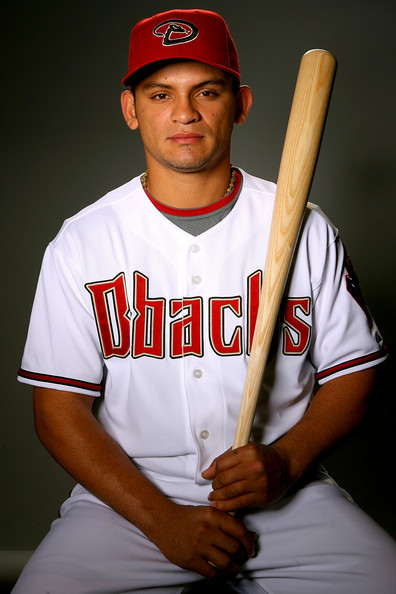The CYC principals work at home and thus employ the Fox Business Network as much of the soundtrack (and in our male half’s case, the visual stimulus) for our daily lives. While listening and desultorily watching, we hear the same corporations mentioned again and again. Lately it’s been the ones you’d expect: Facebook and its declining stock price, Apple and its historic book value, Nike (about to release an expensive new shoe), Best Buy (just hired a new CEO, the equivalent of the Doña Paz hiring a new captain after crashing into the Vector), etc.
All of them are famous, with much of the companies’ values deriving from their brand names. That’s why they’re featured so prominently in the media; or perhaps vice versa.
Name recognition is, without question, the worst possible criterion for determining the worth of a stock. In our above examples we have:
- A pop-culture leviathan that’s effectively eliminated all its competition, and an advertising vehicle that millions of people lock their eyeballs onto daily.
- A iconic company that not only makes elegantly designed and famously reliable gadgets and computers, but one that’s discovered how to sell slightly upgraded versions of said gadgets to the same loyal customers year after year.
- Another icon with a devoted following (albeit slightly less devoted than Apple’s), and which, like Apple, sells a lifestyle and a state of mind as much as it sells products.
- A retail chain whose death throes are almost audible. A decade ago, it was a legitimately cool place to buy toys: today, it’s a prehistoric version of Amazon. Or of the Apple Store.
Publicity is important for entertainers and their ilk. For corporations looking to make money in the long term (and their shareholders), being in the public eye could not be less important. Groupon has gotten more headlines than Cardinal Health every single day of the former’s existence, but it’s the latter that turned a $1 billion profit last year. And sold $100 billion worth of product (drugs, mostly). And employs 30,000 people. Cardinal Health held its initial public offering in 1983, back when Groupon’s managers and directors were barely alive. But there’s a larger point here than comparing daily deal sites to stodgy old pharmaceutical firms.
Listen. Investing is not supposed to be fun.
Check that. Investing should be lots of fun. It’s a far less laborious (and multiplicative) way to build wealth than is working for 8 hours a day. Maybe we’re unclear on how to define “fun”.
We’ve told you in the past not to buy a stock just because you happen to be a customer. But we can do better than just giving you subtractive advice, telling you what to avoid.
Embrace boredom. Invest in workable, quietly successful companies that the average mouth-breather traipsing his way down the street wouldn’t think twice about.
You know what publicly traded company has the highest profit margins? That is, among all of them? Apple is tops among the ones we’ve mentioned so far, but it’s only 24th among all public companies.
Devon Energy! You remember Devon Energy, right? Of course you don’t, you were too busy reading about that chick with the jacked-up teeth getting engaged to that Nickelback guy.
Devon Energy is a natural gas/oil producer based out of Oklahoma City. They own pipelines that are mostly in Texas but that stretch all the way to Illinois. Devon has operations as far north as the British Columbia-Northwest Territories border.
And you’ve never heard of them. The stock is trading at around $60, which is barely 10 times annual earnings. Last year each share paid 80¢ worth of dividends. Analysts think it’ll hit $77 a year from now. Both revenue and gross profit have increased 20% annually over the last few years, the kind of sustained growth that most better-publicized companies can only fantasize about.
(Notice we didn’t tell you what Devon Energy stock has done in the past year. That’s irrelevant to people who don’t own the stock, which presumably includes you.)
None of your friends will be impressed if you tell them you bought a standard lot of Devon Energy. Rather, they’ll get bored and want to leave the room. Fine. Let them.
Opportunities don’t go out of their way to get your attention. Never forget this. Facebook stock was never going to bring you untold riches. The newsworthy IPOs that would don’t exist.
What about Google?
Fine, you got us. Also, retroactively picking stocks is cheating. Google was enjoying healthy if not tropospheric profit margins from Day 1, unlike Facebook. Google was a relatively small player back then: its revenue has grown 38-fold since then, its profits 90-fold. (If you want to see how humorously ancient some business news stories from as recently as 2004 read, check this out.)
When you’re done reading Devon’s financials (a spirited way to spend a Friday afternoon), check out the public companies with the 2nd– through 5th-highest profit margins:
- MGM Resorts, owners of half the fanciest hotels on the Las Vegas Strip, several in China and Vietnam, and a few bottom-of-the-market yet still highly profitable toilets in Detroit and on the Redneck Riviera.
- VISA, the favorite creditor of personal finance bloggers across the country.
- Corning, who probably made the glass your phone is encased in.
- Gilead Sciences, makers of antiviral drugs. Tamiflu is their most famous one.
Admit it. You’ve never heard of at least one of those companies, and never gave the others a second thought.
We’re not going to do all the work for you. That’s part of the reward. Go to the general-purpose finance site of your choice (our favorite is Yahoo! Finance). Read the quarterly and annual financials, available to everyone, and take a freaking risk that your 401(k) doesn’t offer.
Columns of numbers. God, that sounds like a party.
Do you have to read interoffice memos? Or employee handbooks? Or TPS reports? What the hell’s the difference? Aside from how reading financial statements can make you money. You like money, right?
I don’t know how to interpret them.
Sure you do. Read this first.
You should all be rich, or at least upwardly mobile. The resources are at your disposal, waiting to be capitalized upon. The research is so easy even that dippy, chunky gal from So Over Debt can do it. (Mmm…dippy and chunky.) Stop reusing your paper towels and do something remunerative with your time. You’re welcome.




